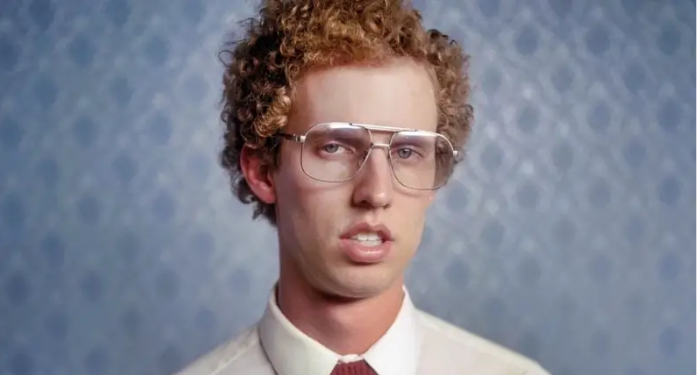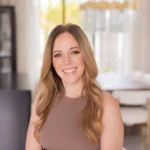
Unpopular opinion here: Myo is NOT the wild, wild west.
All too often when browsing social media, you’ll see comments regarding myofunctional therapy as the wild, wild west, anything goes, anybody can treat it.
No- absolutely not. How did we get here? I cannot comprehend this mindset towards myofunctional therapy.
How has myofunctional therapy been marketed so incorrectly over time that even some speech language pathologists are saying it has become like the wild, wild west & everybody’s doing it.
Myofunctional therapy is not the wild, wild west.
Orofacial myofunctional therapy is regulated. Myo is a modality. It’s an area that we assess and treat. Myofunctional therapy requires an individual to possess a license that allows myo within their scope of practice. For example, as a speech -language pathologist, I have a license that allows me to treat myofunctional disorders.
One caution is that there are organizations allowing anyone to take their course. These organizations allow music therapists, massage therapists, or other individuals who do not have orofacial myofunctional therapy within their scope of practice through their licensing agency, to take their myo courses. By pointing this out, I’m not downplaying anyone’s skill or professionalism, but just because you’re able to or because you’ve taken a course, it does not qualify you to assess and treat without a license. I *can* go take all the courses in the world on teeth, but, If I don’t go to dental school, I cannot practice dentistry. The end. It’s out of my scope and licensure. It’s the same thing when it comes to orofacial myofunctional therapy. However, in the online space, people have marketed orofacial myofunctional therapy to *many* professions that do not have it within their scope and we seem to turn a blind eye to this.
What we need to realize is that at the end of the day, this is happening at the expense of patients. My sole purpose here and goal in having this conversation is to educate patients in knowing who to seek out for the best medical care. My license as a speech-language pathologist in the state of Maryland and in the state of Florida allows me to assess, diagnose, and treat certain things that other people can’t do without a license as a speech language pathologist.
Let that sink in. A speech language pathologist is licensed to treat a myriad of things UNDER our licensure; orofacial myofunctional therapy IS within our scope.
Now that we all understand licensure, who can do myofunctional therapy?
According to the International Association of Orofacial Myology (IAOM,) which I no longer belong to, SLPs, registered dental hygienists, and dentists are the licensed professionals who can practice myofunctional therapy. Outside of those individuals, the IAOM allowed one physical therapist to also practice myofunctional therapy because they were highly specialized.
Earlier, we talked about organizations who allow practically anyone to take their courses. Here, we have the opposite. If someone can practice feeding therapy under their respective licensure, why are they not allowed to practice myofunctional therapy? There’s such an overlap in feeding therapy and myofunctional therapy. Technically, when you’re working with kids who are under the age of four (cognitively) the child is too young to participate in a traditional myofunctional therapy program and thus we must modify their treatment in the form of feeding therapy. This is totally different than allowing an individual with NO training in feeding to take a myofunctional therapy course.
So I pose the question again, why are some licensed professionals who have feeding therapy WITHIN their licensing board/scope of practice, excluded from taking courses in myofunctional therapy with the IAOM while others, who do not have feeding therapy within their scope, are allowed?
One thing we have discussed before on the blog but need to highlight again is that only professionals who are licensed to do feeding therapy can work with a “myo” patient under the age of four, or cognitive age of four.
Why is this? Why do I make a point to include patients who may be over the age of four but cognitively, four or younger? (By cognitive age, I mean the way in which our brain is functioning, not chronological.) We need to take into account the cognitive age of the child or adult who may either have a delay or disability that does not allow them to function above the age of 4. In that case, we are practicing feeding therapy not myofunctional therapy. The reason for that is if they are not functioning at or above the level of a four-year-old cognitively, their ability to understand, process the information given, and volitionally perform tasks in therapy is hindered and therefore not an appropriate candidate for a traditional myofunctional therapy program. Feeding therapy can still be accomplished with these individuals to help them achieve their goals.
Under the age of four, because they are not cognitively able to perform in a traditional myofunctional therapy program, we must modify their treatment in the form of feeding therapy. These modifications make what we do in myofunctional therapy overlap greatly with pediatric feeding assessment and intervention. That’s actually what I teach in my Feed the Peds course, which is geared to teach licensed professionals in feeding therapy.
What’s my point? Myofunctional Therapy IS regulated. If someone is practicing it without having it within their licensure scope, it is illegal. I realize there are some people who are working out of scope and in doing so open themselves up to losing a license that they have in another area, opens them up to litigation, even perhaps having a patient bring a malpractice case against them or being sued for not doing therapy incorrectly, etc. However, I am not a lawyer, and do not pretend to be one, but this should be taken into account.
Just because we take a course in a subject, does not make us the expert NOR does it give us a degree and licensure in that subject. I can not practice as a physical therapist, occupational therapist, or dental hygienist WITHOUT going to school and getting a license in those areas. In the birth- four arena, typically we see SLP’s, OT’s, PT’s working with individuals with delays and this IS within their licensure.
For anyone who is confused and while our state license trumps ASHA, you can go to www.asha.org to read more about SLPs and what falls within our licensure to assess and treat. On ASHA, there is a practice portal and you can look up orofacial myofunctional disorders and read the overview. It talks about incidents and prevalence, signs and symptoms, causes, roles and responsibilities, assessment, treatment, resources, references, and summarizes the research.
Bottom line?
Please know who you’re working with. Please know myo IS regulated, it is not its own profession.
As a business owner, we get a lot of phone calls in my private practice and DM’s asking for myofunctional therapy for their one month old. What a one month old needs is not myofunctional therapy. They need to work with somebody who is trained in pediatric feeding, airway, who also has training in tethered oral tissues, and can complete a comprehensive assessment. This is a very different process than a myofunctional assessment. Even a 3-4 year old will receive a very different assessment than what is taught in a myofunctional course.
My goal? To Educate YOU so that you can choose a qualified professional to work with your child and feel confident that your child’s needs will be included in a thorough assessment and treatment plan.
Myofunctional therapy is not a stand alone licensure.
However, myofunctional therapy is a certification that can be added to licensures that allow it within their scope of practice. I offer a certification program in myofunctional therapy to individuals who have the appropriate licensure (i.e. SLPs, OTs, PTs, RDHs.) My goal in creating this certification? So that YOU, the parent or individual in need of myo, has access to HIGHLY QUALIFIED individuals who are not only certified but well within their licensure to treat.
Myo is not the wild wild West. It is regulated. It requires licensure and please know who you are working with.
I do have two directories. One is www.pediatricfeedingtherapist.com when looking for someone to help with your child under the age of four. I am also working on a myofunctional therapy directory as well, which will be linked to the untetheredpodcast.com website soon.




